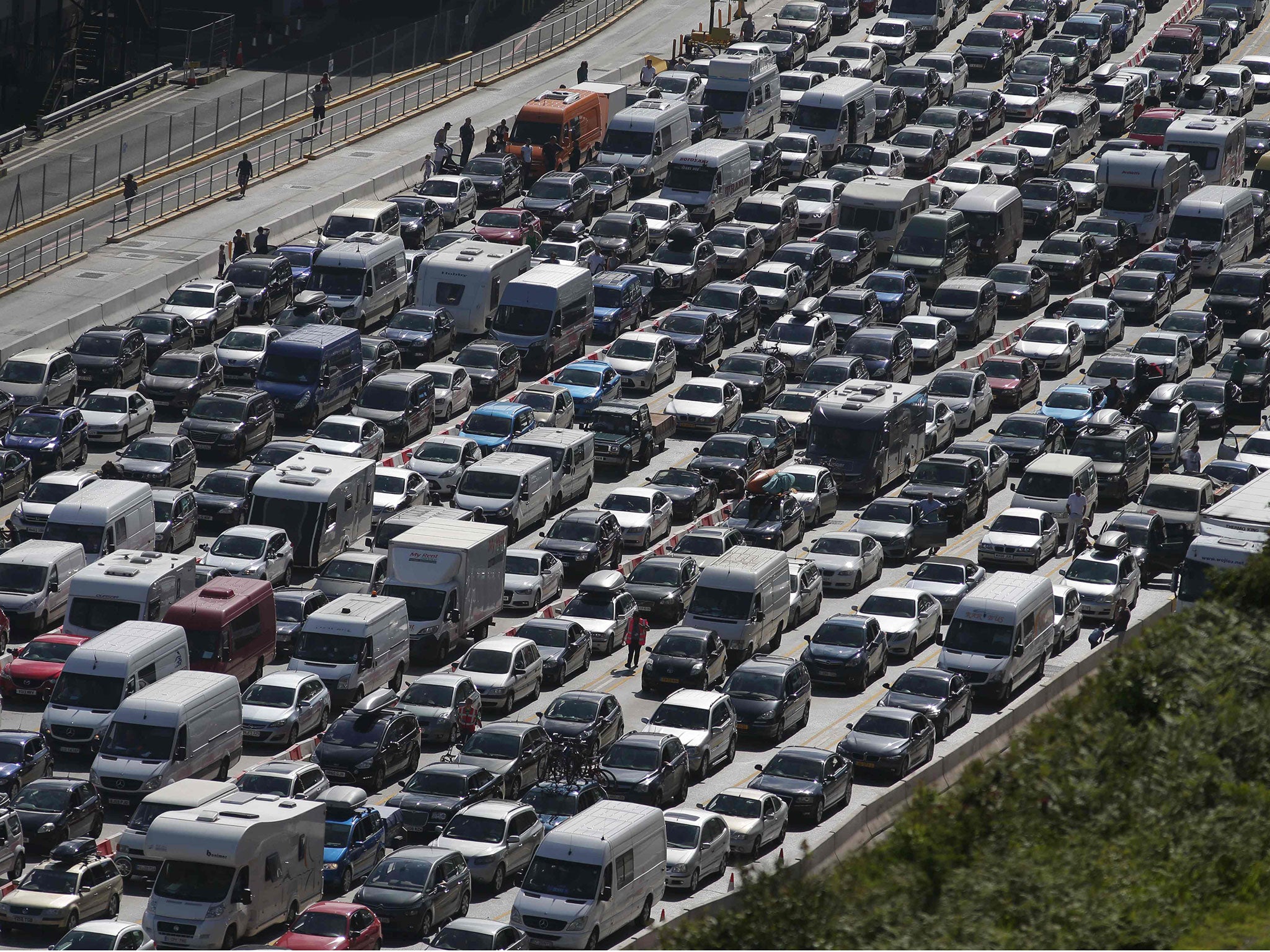Get ready for Black Saturday: Will this weekend be the most chaotic ever for travellers?
The Big Questions: Travel correspondent Simon Calder highlights the hurdles facing those heading to the continent this weekend

Last weekend there were massive queues at Dover. Will motorists heading for France have the same problem this weekend?
Everyone hopes not. Tough new security measures imposed by the French authorities – demanding checks on every car heading across the Channel –coincided with a surge of traffic at the start of the main summer holidays. Queues reduced swiftly after the weekend, and it is hoped that better staffing will avert problems this weekend.
DFDS, which sails from Dover to Calais and Dunkirk, says: “The company is working closely with colleagues at the Port of Dover and continuing its dialogue with government to insist that the French authorities ensure the border controls at Dover remain fully manned throughout the busy holiday period to prevent a repeat of last weekend's delays.
"We have been assured that this will be the case.”
The ferry line says passengers with economy tickets can travel on one sailing either side of the crossing they originally booked without further charge.
P&O Ferries says normal conditions will apply. Brittany Ferries says it anticipates no problems on its routes in the western Channel. Eurotunnel from Folkestone to Calais is expecting a busy but smooth-running weekend.
Assuming travellers get across the Channel - what next?
Motorists are likely to get caught in extreme congestion, especially on Saturday – which is expected to see the worst gridlock of the year so far. This weekend is the “crossover” for French families – some of them at the end of their July holidays, others at the start of their August vacances.
The Foreign Office warns: “The weekend of 29 to 31 July 2016 is expected to be exceptionally busy on all parts of the French road network due to holiday traffic. Leave extra time for your journey.”
France’s National Road Information Centre (CNIR) defines 30 July 2016 as "black Saturday" and warns that “almost all major arteries connecting [France] will be affected by congestion”.
The worst-affected stretch of road is expected to be the Autoroute du Soleil south from Lyon – a trip that is very popular with British motorists heading for the south of France.
Drivers are urged to “favour Sunday” when planning their journeys.
What security measures will holidaymakers experience in France?
Ever since the Charlie Hebdo attack in Paris 18 months ago, public buildings and tourist attractions have been protected by armed police, with searches of bags becoming routine. These checks remain in place. In addition, a new “national guard” of 23,000 troops and police officers will be deployed to holiday destinations during the summer.
Tourists are soft targets, as a number of terrorist atrocities such as the massacre on the beach of holidaymakers in Tunisia last year – in which 30 British people died – have demonstrated. On Bastille Day, two weeks ago, 84 people died when a man with a 19-tonne truck went on the rampage on the Promenade des Anglais in Nice.
Individual resorts can take their own additional measures. The mayor of Cannes, which is close to Nice, has banned large bags that could be used to conceal weapons or explosives.
Is it safe to travel to France?
The Foreign Office says: “There is a high threat from terrorism. Due to ongoing threats to France by Islamist terrorist groups, and recent French military intervention against Daesh [Isis], the French government has warned the public to be especially vigilant and has reinforced its security measures.”
Absolutely is impossible to guarantee, but the risk for the average British visitor of being caught up in a terrorist atrocity is extremely low. The dangers on the roads and the beaches are significantly higher.
How badly is the tourist industry being affected?
It is difficult to assess, because many of the tens of millions of visitors to France this summer have already booked and will continue with their plans. The long-term question is: how will the terrorist atrocities and security fears affect future bookings?
One indication of the lack of business is shown by an unprecedented promotion on Eurostar. The train operator, which runs from London to the French and Belgian capitals, has come up with a £58 day return for midweek travel in August – far lower than normal for short-notice bookings. For departures on Tuesday, Wednesday or Thursday, you can only book from Monday to Wednesday. The trains available are restricted.
Hotel rates surveyed by The Independent in Paris suggest falls of 10-15 per cent compared with a normal summer.
Subscribe to Independent Premium to bookmark this article
Want to bookmark your favourite articles and stories to read or reference later? Start your Independent Premium subscription today.

Join our commenting forum
Join thought-provoking conversations, follow other Independent readers and see their replies